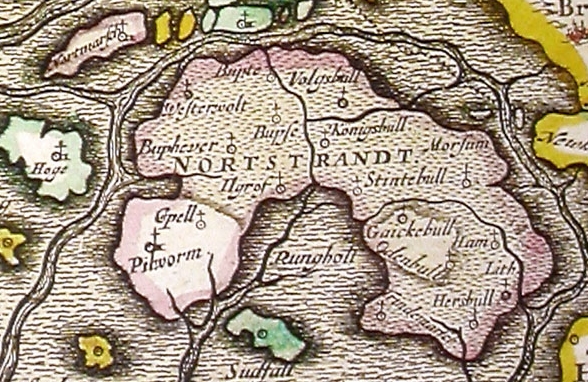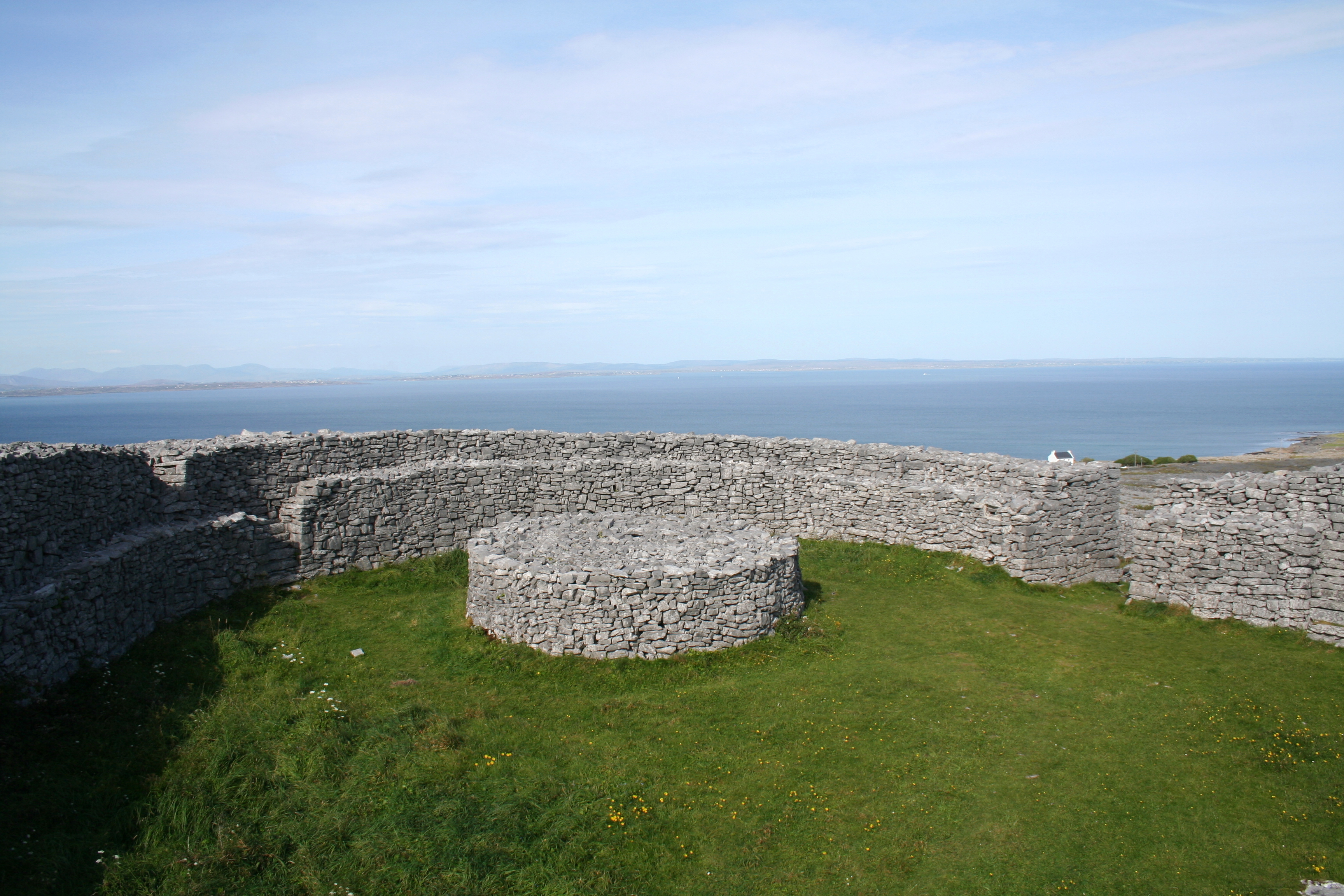After “all you can eat” and “my wife doesn’t understand me” there are few phrases more evocative, more redolent of mystery and desire than “lost city”. Which is what the mediaeval German city of Rungholt is now, having transitioned from “found city” to “lost city” under a massive storm-surge that swept across the North Sea on January 16, 1362.
Admittedly, given that one or more of Rungholt’s roughly 2,000 inhabitants found the city pretty much every waking minute of every God-given day before this event, it is unlikely that they referred to it as a “found city”, preferring to call it, simply, a “city”.
Fragments of life in Rungholt – bones, bricks, pots and tools – were still being washed up until the early 20th Century. Found objects from a lost city.
The storm itself warranted a name at the time, the Grote Mandrenke – Low Saxon for “The Great Drowning of Men” – which is more awesome and terrible a name than it would have been given had it occurred today, when it would no doubt have been called something like Atlantic Gale Beryl, or European Stormtide Siobhan. The Grote Mandrenke swept across England, the Netherlands, Germany, and Denmark, killing at least 25,000 people. It created new islands by splitting land from mainland or breaking whole ones up into component parts and swallowed towns whole. Rungholt’s legendary wealth was, of course, of little use in the face of the storm.
Nineteenth Century German poet, Detlef von Liliencron, imagines Rungholt’s last moments as he sails across its sunken location:
Ein einziger Schrei – die Stadt ist versunken,
und Hunderttausende sind ertrunken.
Wo gestern noch Lärm und lustiger Tisch,
schwamm andern Tags der stumme Fisch.
Heut bin ich über Rungholt gefahren,
die Stadt ging unter vor sechshundert Jahren.
A cry – the city is submerged,
and hundreds of thousands have drowned.
Where yesterday there was noise and merriment at table
swam next day the dumb fish. —
Today I travelled over Rungholt,
the city went under six hundred years ago.
Is it possible that, like that other sunken city Atlantis, Rungholt might offer some hidden wisdom to be gleaned by those of us who dwell in the yet-undrowned future? Salient lessons about human transience and vulnerability, perhaps. A demonstration of the unleashed ferocity of the climate system and a warning not to feed the beasts of ocean and atmosphere with more and more energy as part of an almost unhinged pursuit of wealth.
Sadly, I have the feeling that more cities will go under before we are done.
File under: it’s all fun and games til someone loses an island | nature vs. nurture
(Image source: scinexx.de)






4 Comments
Add YoursI don’t know about the other details of your post on Rungholt, but you have transposed the numbers in the date you give for Rungholt’s loss to the sea. Rungholt was inundated by the North Sea on 16 January 1632, not 1362 as your post indicates.
I’m sorry. I’m wrong and you are right. The article on Runholt on Wikipedia lists the wrong, transposed date of 1632. My apologies.
Thanks Norm. I am taking a few liberties with history and science and biography and, well basically reality, so it’s worth checking up on me!
Rungholt was danish, not german. The region became german in 1864.